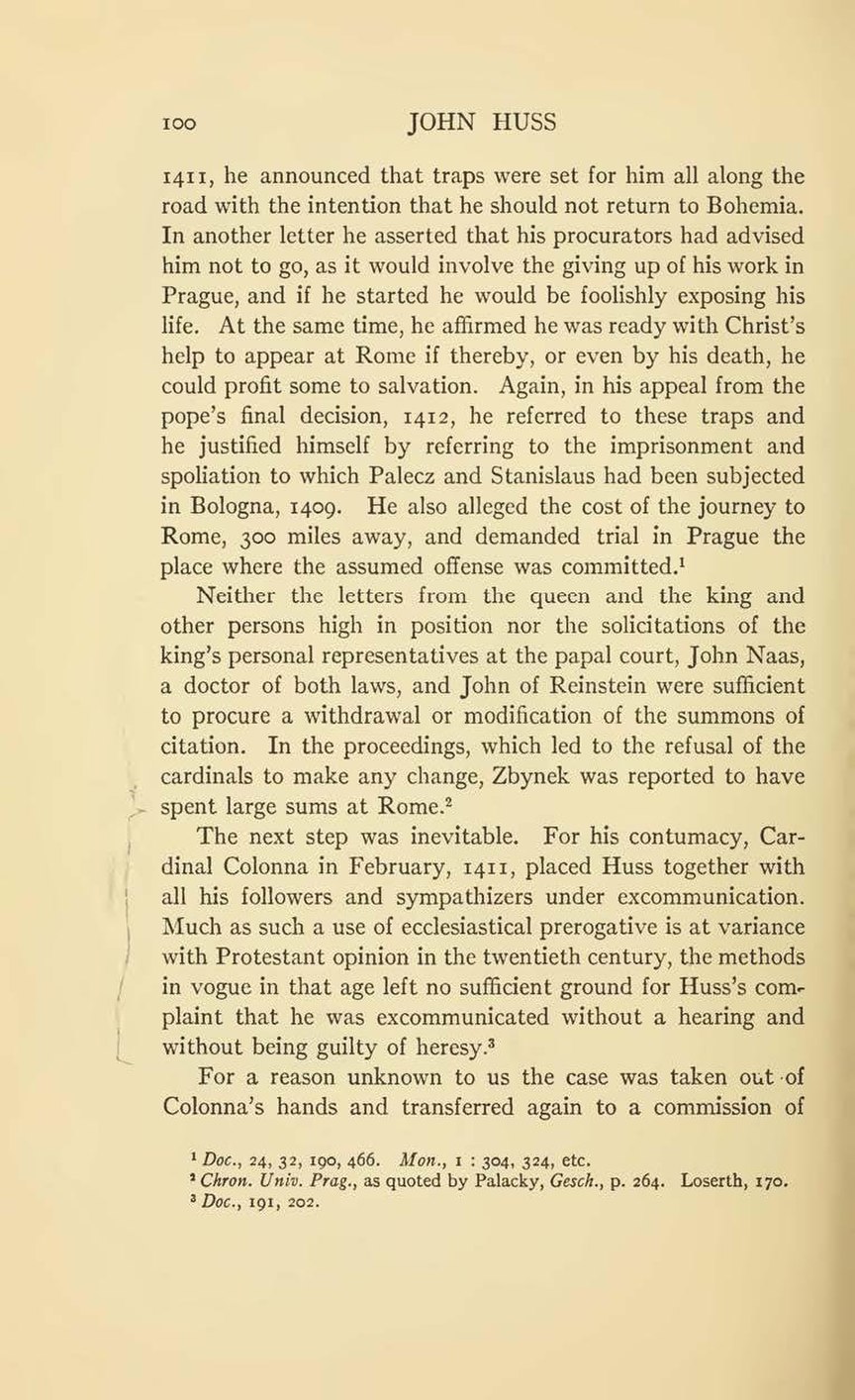1411, he announced that traps were set for him all along the road with the intention that he should not return to Bohemia. In another letter he asserted that his procurators had advised him not to go, as it would involve the giving up of his work in Prague, and if he started he would be foolishly exposing his life. At the same time, he affirmed he was ready with Christ’s help to appear at Rome if thereby, or even by his death, he could profit some to salvation. Again, in his appeal from the pope’s final decision, 1412, he referred to these traps and he justified himself by referring to the imprisonment and spoliation to which Palecz and Stanislaus had been subjected in Bologna, 1409. He also alleged the cost of the journey to Rome, 300 miles away, and demanded trial in Prague the place where the assumed offense was committed.[1]
Neither the letters from the queen and the king and other persons high in position nor the solicitations of the king’s personal representatives at the papal court, John Naas, a doctor of both laws, and John of Reinstein were sufficient to procure a withdrawal or modification of the summons of citation. In the proceedings, which led to the refusal of the cardinals to make any change, Zbynek was reported to have spent large sums at Rome.[2]
The next step was inevitable. For his contumacy, Cardinal Colonna in February, 1411, placed Huss together with all his followers and sympathizers under excommunication. Much as such a use of ecclesiastical prerogative is at variance with Protestant opinion in the twentieth century, the methods in vogue in that age left no sufficient ground for Huss’s complaint that he was excommunicated without a hearing and without being guilty of heresy.[3]
For a reason unknown to us the case was taken out of Colonna’s hands and transferred again to a commission of
